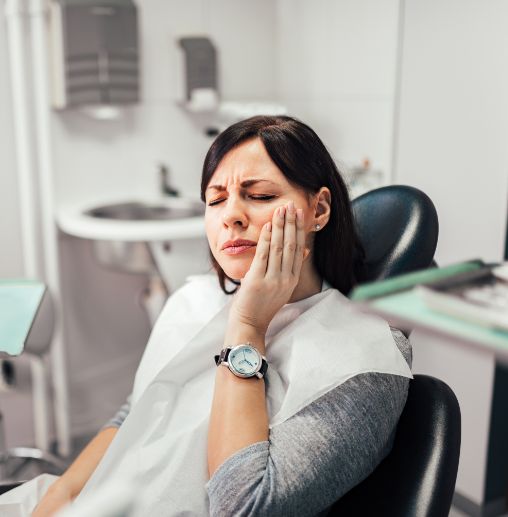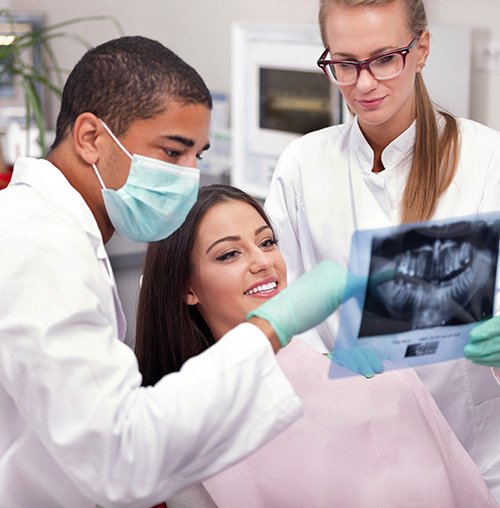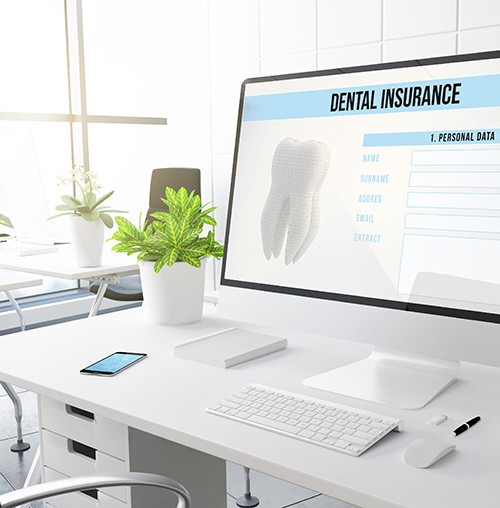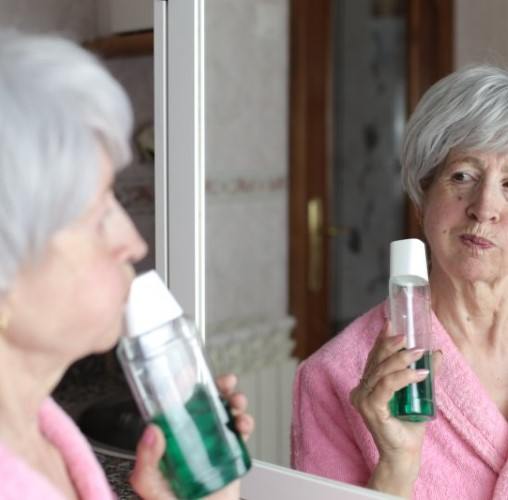Emergency Dentist Colorado Springs
Dental Pain? We Won’t Make You Wait
If you or a loved one is currently experiencing some kind of dental pain, you don’t need to wait—go ahead and give Colorado Springs Complete Dentistry a call. We leave time open every day for dental emergencies so people can get in without delay, and Dr. Lane is able to perform a wide variety of procedures in-house. The only thing worse than a toothache is having to wait to get it fixed, but our Colorado Springs emergency dentist and team will do everything we can to help you as soon as possible!
Why Choose Colorado Springs Complete Dentistry for Emergency Dentistry?
- Same-Day Dental Emergency Appointments
- In-Network with Most PPO Dental Insurance
- Most Dental Procedures Performed In-House
How We Treat Dental Emergencies

We understand that time is precious when someone is in pain, so you can trust we’ll move fast when it really matters. The first thing you should do is give our team a call and explain your situation over the phone. We’ll let you know if you should come in right away and offer first-aid tips as needed.
When you arrive, we’ll perform an exam and take X-rays, so we fully understand the extent of the problem. Dr. Lane will present our findings, discuss treatment options (and their associated costs), and make sure someone’s pain has been stopped before they leave. While we’re able to accomplish a lot in a single appointment, if a patient requires extensive repair, we may ask them to come back for a follow-up.
The Most Common Dental Emergencies
We recommend giving us a call if you even think you’re dealing with a dental emergency. It’s always better to be safe than sorry! Below, you’ll find some of the most common dental emergencies we deal with every day, but don’t hesitate to reach out even if your problem isn’t mentioned here.
Understanding the Cost of Emergency Dentistry

Because dental emergencies can vary widely when it comes to their severity, the cost of treatment can be quite different from patient to patient. In general, the quicker you come to see us, the less expensive the solution will be because we’ll be able to handle the problem before it progresses. Thankfully, many emergency treatments can be partially covered by dental insurance, and we’ll discuss how we can use your plan when you come to see us (or go over financing options if you don’t have coverage).
How to Prevent Dental Emergencies

In the pursuit of excellent oral health, it’s always better to prevent catastrophe than deal with the fallout. This is why taking preventive measures is so important, not only for your mouth but also for the rest of your body and your wallet. At Colorado Springs Complete Dentistry, we believe that education is the number one way to help our patients outside of our dental work. If you want to learn what you can do to prevent dental emergencies, read more below.
Dental Emergency FAQs
Should I visit the emergency room first for dental emergencies?
You shouldn’t go to the ER for toothaches, damaged restorations, and other common dental injuries. You should, however, head there if you are experiencing any potentially life-threatening symptoms, like difficulty breathing or swallowing. That way, you get the medical attention you need right away.
What does chronic bad breath mean?
A persistent, foul odor on your breath could be linked to your diet, so it’s a good idea to steer clear of onions, fish, and other pungent foods. If that doesn’t work (and you have a solid oral hygiene regimen in place), then give us a call; the root of the problem may be an untreated oral health issue. Until your appointment, continue to brush and floss consistently, and keep sugar-free mints or gum on hand to freshen your breath on-the-go.
My chipped tooth doesn’t hurt. Do I still need to visit?
Even if your chipped tooth doesn’t hurt, there’s a chance that it can break further or develop an infection. That’s why we encourage our patients to reach out to us ASAP. Our goal is to assess the damage and intervene with the necessary restorative care before the situation gets worse.
How should I sleep with tooth pain?
Sometimes, it’s simply not possible to get to our office the same day for treatment – whether it’s because you’re out of town or because your toothache started late in the evening. If you find yourself in this situation, it’s helpful to know how to alleviate your discomfort in the short-term so you can still get a good night’s rest. The first step is avoiding crunchy, sugary, and acidic foods during dinner. The second step is taking OTC pain medication about 30 minutes before bed and using a cold compress to alleviate inflammation. The third and final step is to prop yourself up on a few pillows so your head stays elevated while you sleep.
Will my toothache go away on its own?
All too often, patients try to ignore their tooth pain instead of addressing it. However, the more time that passes, the worse the root of the problem will become. That’s why it’s best to take a different approach: contact us when the abnormal symptoms first arise. From there, we can determine if a same-day visit to our office is necessary and, if it isn’t, give you specific instructions on what to do until you arrive at our office for your exam.
Should knocked-out teeth be placed in water?
No, a knocked-out tooth shouldn’t be placed in water because it cannot preserve the root surface cells. We recommend either placing the tooth back in its socket or putting it in a clean container filled with milk. If your tooth is badly damaged or you weren’t able to find it, don’t worry – we can restore the look, health, and function of your smile with the next best thing: a dental implant!
I Need a Checkup & Cleaning I Have a Cavity or Broken Tooth I am Missing One or More Teeth I Want to Enhance My Smile I Want a Straighter Smile I Have Jaw Pain View Our Services










